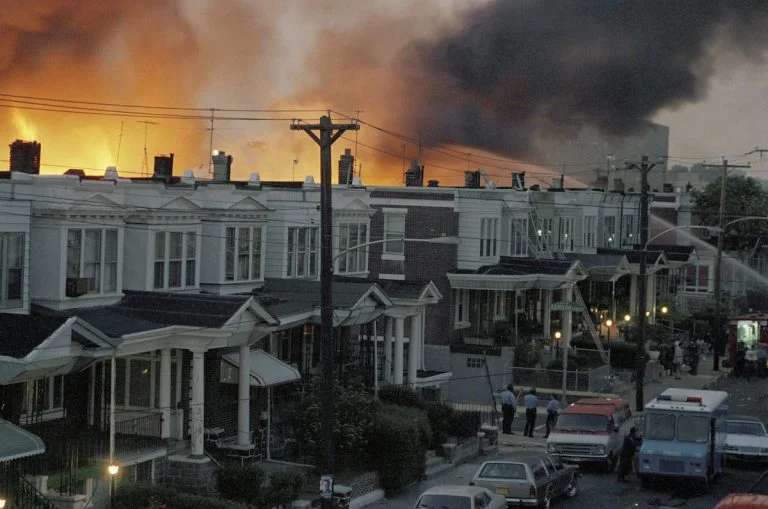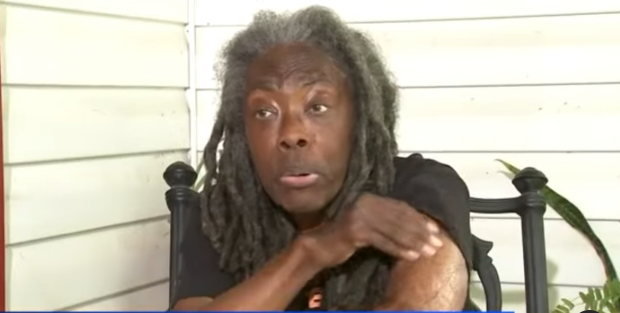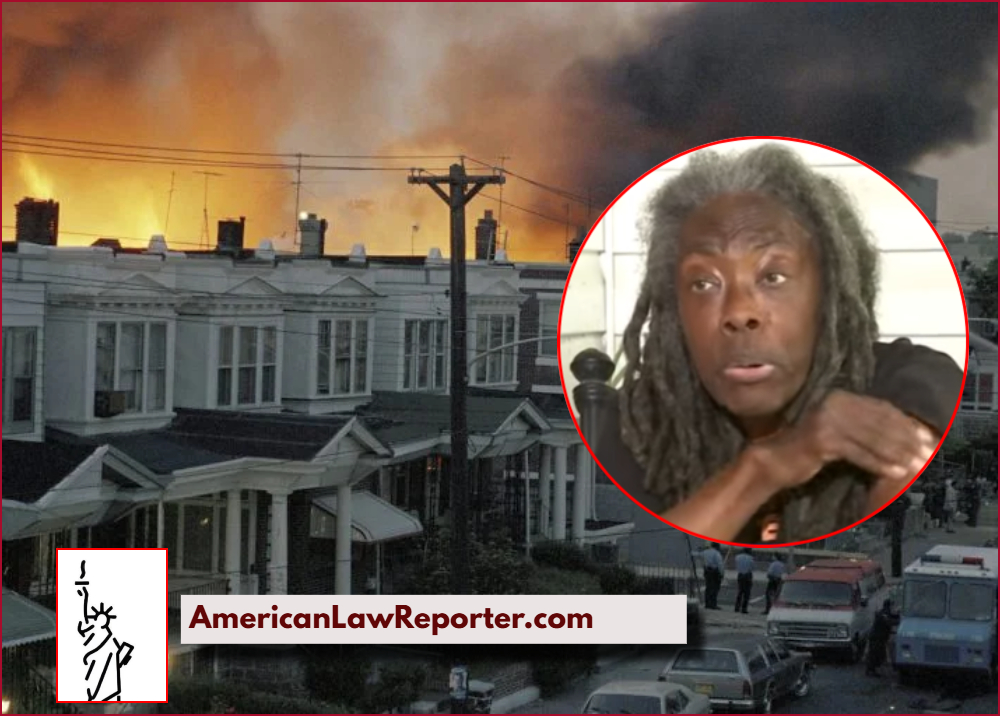Tuesday marked 40 years since the deadly police bombing of a West Philadelphia row home that killed 11 people — including five children — and decimated an entire city block in what remains one of the most haunting chapters in the city’s history.
On May 13, 1985, Philadelphia police dropped a military-grade explosive onto a home on Osage Avenue occupied by the Black liberation group MOVE following a tense standoff. The blast and resulting fire destroyed 61 homes, displaced over 250 residents, and left a permanent scar on the city — physically, emotionally, and morally.
The bombing was intended to target MOVE, which officials at the time had labeled a radical organization following a series of confrontations with law enforcement, including a fatal 1978 shootout. But the fallout — particularly the deaths of children and the decision to let the fire burn — continues to haunt survivors and fuel calls for justice.
“It was a horrifying day,” said Ramona Africa, one of only two survivors, as she sat on her porch on the anniversary. “You see this,” she said, lifting her sleeve to reveal burn scars. “These are from May 13.”
Africa, now 69, was inside the house with other MOVE members and children when the bomb ignited the blaze.
“We tried to come out, tried to bring our children out,” she recalled. “They deliberately shot at us. Shot us back into the fire.”

A City in Flames, A Legacy Ignored
What began as an attempt to serve arrest warrants turned into a tragedy of historic proportions. At the direction of then-Mayor Wilson Goode and Police Commissioner Gregore J. Sambor, police dropped an incendiary device from a helicopter to disable a rooftop bunker.
Instead of containing the flames, authorities allowed them to spread. Inaction turned lethal as fire engulfed the entire block. Eleven people were killed: Delisha Africa (12), Tree Africa (14), Tomasa Africa (9), Netta Africa (12), Little Phil Africa (10), John Africa (MOVE founder), Frank Africa, Rhonda Africa, Conrad Africa, Theresa Africa, and Raymond Africa.
Michael Moses Ward, known as Birdie Africa, was the only child to survive. He died in 2014. Ramona Africa is the sole living survivor.
A Community Still Grieving
The trauma did not end in 1985. In recent years, families learned that human remains from the bombing victims — including bones belonging to Delisha and Tree Africa — were stored at the University of Pennsylvania and the city’s medical examiner’s office, and had been used for research and training without the families’ knowledge or consent.
“[Their] bones were stolen and put in a museum and used as research material and fundraising material,” said Michael Africa Jr., whose uncle founded MOVE. “There’s no accountability for the people that did these things.”
Last year, Delisha’s remains were finally returned to her mother after revelations that her bones had been held by UPenn’s Museum of Archaeology and Anthropology and used by Princeton University as well.

A Day of Remembrance
Philadelphia City Council recently passed a resolution declaring May 13 a day of remembrance and reflection. Councilmember Jamie Gauthier read the names of the 11 people who died, honoring lives lost and calling attention to the city’s painful legacy of police violence and systemic racism.
The Community College of Philadelphia hosted a day-long symposium Tuesday to explore how the MOVE bombing is remembered and retold. Attendees discussed not only the events of 1985 but the lasting social and political implications, especially for Black communities subjected to state violence.
Ramona Africa continues to advocate for the release of journalist and activist Mumia Abu-Jamal, whom MOVE members and supporters believe was wrongfully convicted.
Never Forget
For survivors and families, the fight for justice and accountability continues. “Every May 13 is heavy,” Ramona Africa said. “It doesn’t get easier.”
Community leaders say the tragedy should serve as a warning about the dangers of unchecked police power and systemic dehumanization. As Pastor Jay Gooding Sr., an NYPD clergy liaison, put it: “The answers can’t come from City Hall alone. We need the community. We need the truth. And we need to never forget.”

